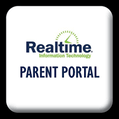Assistive Technology
Facilitated Communication (FC) is a form of Augmentative Alternative Communication (AAC) in which people develop their pointing skills for communication, utilizing pictures, symbols, letters and/or words.
Facilitated Communication training is useful for teaching individuals who cannot speak or point reliably due to neuro-motor problems such as impulsivity, regulation of movement, poor eye/hand coordination, and difficulty with initiation and sustainment of movement to develop effective pointing skills.
The method involves a communication partner, typically called a facilitator providing multiple methods of support that may include, but are not limited to the following:
The typed communication with the multiple forms of support provided by the facilitator allows the FC user to communicate messages that differ in their complexity and usefulness than the FC users use of speech alone. This support is HIGHLY individualized and based on specific needs. Thus it does not look the same from person to person. This diversity of supports and styles of typing complicates any understanding of Facilitated Communication as a prescribed method. Instead it is a dynamic and long-term process of identifying, implementing and evaluating communication supports according to Facilitated Communication Training Standards. The goal of Facilitated Communication is for individuals to achieve independent typing, often with a combination of typing and speech (Crossley, 1994). People who use FC successfully often use it as part of a total communication approach. It is used in combination with other methods of communication including speech, sign, gestures, etc. This enables the person access to the fullest range of communication options.
Breaking The Barriers Action Committee 2006
Facilitated Communication training is useful for teaching individuals who cannot speak or point reliably due to neuro-motor problems such as impulsivity, regulation of movement, poor eye/hand coordination, and difficulty with initiation and sustainment of movement to develop effective pointing skills.
The method involves a communication partner, typically called a facilitator providing multiple methods of support that may include, but are not limited to the following:
- Physical Support
- Emotional Support
- Communicative Support
The typed communication with the multiple forms of support provided by the facilitator allows the FC user to communicate messages that differ in their complexity and usefulness than the FC users use of speech alone. This support is HIGHLY individualized and based on specific needs. Thus it does not look the same from person to person. This diversity of supports and styles of typing complicates any understanding of Facilitated Communication as a prescribed method. Instead it is a dynamic and long-term process of identifying, implementing and evaluating communication supports according to Facilitated Communication Training Standards. The goal of Facilitated Communication is for individuals to achieve independent typing, often with a combination of typing and speech (Crossley, 1994). People who use FC successfully often use it as part of a total communication approach. It is used in combination with other methods of communication including speech, sign, gestures, etc. This enables the person access to the fullest range of communication options.
Breaking The Barriers Action Committee 2006


